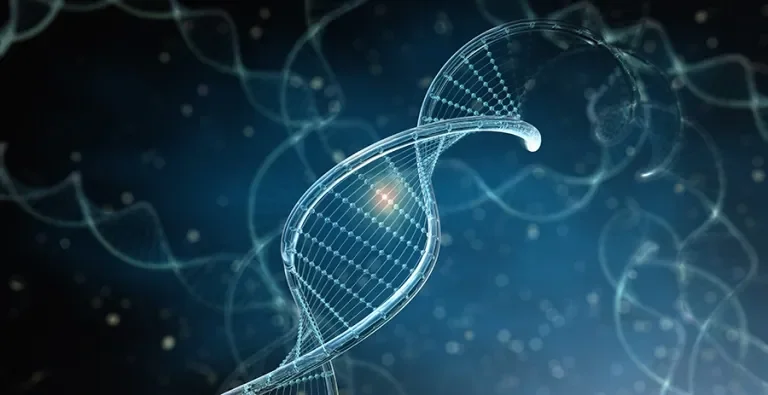

DCU scientists commence work with US and UK partners to create new gene therapeutics
A research group at Dublin City University have commenced work with UK and US partners to create new gene therapeutics for human disease—in particular cancer.
The work involves a pioneering approach using nucleic acid ‘click chemistry’ and should improve selectivity while reducing damage to surrounding healthy cells.
Led by Dr. Andrew Kellett of Dublin City University the project involves collaboration with DCU colleague Dr. Niall Barron, Director of the National Institute of Biotechnology (NICB), DCU; Prof. Nicholas P. Farrell (Virginia Commonwealth University, USA); Prof. Tom Brown (University of Oxford) and ATDBio Ltd. (Oxford and Southampton, UK).
The research aims to create a unique class of genome therapeutics that binds with high affinity and selectivity to genetic targets within a diseased cell.
It is also intended to minimise damage to healthy cells, which are affected by many current treatment regimes.
Scientists have shown that by using small pieces of modified DNA they can treat diseased cells through a process called antisense therapy.
Antisense drugs work by stopping the production of ‘bad’ proteins within diseased cells.
Unfortunately, current antisense therapeutics have limitations where they can fail to reach their target or become degraded in the process.
This new research is aiming for a targeted cancer therapy which is reliable; reaches its destination and where the quality is preserved during transit through the body.
Dr Andrew Kellett, Dublin City University said:
“Antisense therapy is an emerging area that challenges the existing approach to developing new drug molecules.
Instead of indiscriminately exposing both healthy cells and diseased cells to a chemotherapeutic drug, this approach selectively targets the disease at a genetic level.
The project aims to generate new antisense biomaterials that contain an inorganic platinum carrier ‘clicked’ to a chemically engineered oligonucleotide.
Our aim here is to develop unique hybrid materials and examine their therapeutic potential against human cancer cells.
We are excited to get the work underway at the NICB and look forward to collaborating with renowned partners in the UK and US.”
Dr Niall Barron of the NICB said:
“Chemotherapeutic drugs have provided huge benefit to cancer patients over the last 50 years.
However many of them cause very unpleasant side-effects due to their non-specific mechanism of killing cells – in other words they often kill ‘healthy’ cell too.
Gene therapy (or nucleic acid therapy) on the other hand seeks to address disease in a very targeted and specific manner.
This project will combine the cancer-killing efficacy of small chemotherapeutic drugs with the specificity of nucleic acid-based targeting in an attempt to provide a new weapon for clinicians in the fight against cancer.”
Prof. Nicholas P. Farrell of Virginia Commonwealth University said:
“I look forward to strengthening our productive collaboration with DCU.
The extension of our polynuclear platinum platform to antisense therapy is a logical and exciting one, requiring exactly the interdisciplinary expertise provided by the group.
The international aspect is especially important in advancing science to resolve complex issues in health and medicine.”
Prof. Tom Brown of University of Oxford and ATDBio Ltd said:
“We have been working on applications of highly efficient chemical reactions (click chemistry) in the nucleic acid field for several years in the ATDBio research lab and at Oxford University.
We are therefore excited to be given the opportunity to combine our expertise with that of Drs Kellett, Barron and Farrell to tackle this ambitious multidisciplinary project.
We have complementary expertise, and we will each bring something unique and important to the project.
This innovative approach is designed to develop new therapies for severe diseases such as cancer, where we hope to make a significant contribution, and at the same time make new fundamental discoveries.”
The project, Polynuclear Platinum(II) Biomaterials (PPtBio) for Antisense Therapeutic Application and Detection of Human Genetic Disease, is funded by Science Foundation Ireland.
